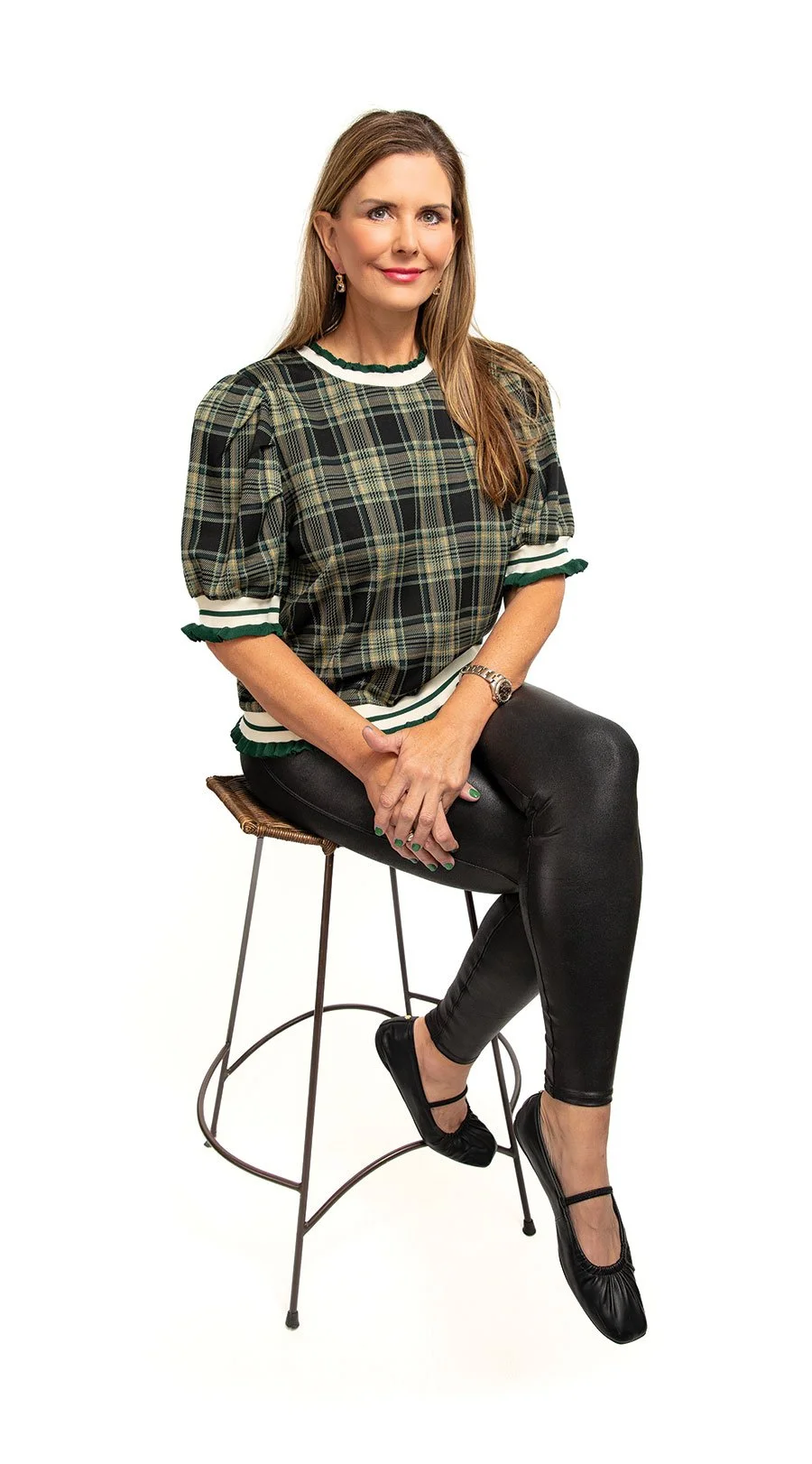The Way I See It...
Publisher's Letter
Robin Rogers, Ed.D.
December 2025
I, like so many others, get sentimental this time of year. The holidays remind me most of my family, the people I’ve lost, and the people who I have gratefully gained. It’s the time of year when my mother makes candy—Martha Washington chocolates, haystacks, and peppermint bark—which she doesn’t do at any other time of the year. She scents her house with real cinnamon sticks on her stovetop, and she has a special gift, wrapped for everybody she loves, even if it is something simple. Watching her (always, but especially during the holidays) reminds me of the kind of person I aspire to be—caring, grateful, and focused on what actually matters. At Christmas, I am ever so grateful for the positive female role models in my life, who have made family their top priority.
In a storybook version of Christmas, family members from near and far gather around a perfectly dressed dinner table for a holiday meal. Historically, that has not been my own family’s tradition. When my kids were young, we were more into Christmas brunch, complete with mimosas and breakfast casserole. But last year, someone in my life—to whom I am not biologically or legally related but who is definitely my family—suggested that I host Christmas dinner. I agreed, although the idea was daunting. I am not a homemaker or “hostess with the mostest.” I do not cook. I do not like to clean. And yet, if I am having people over to my house, I hold myself to Martha Stewart standards. We have to use the nice china, real silverware, placemats, Christmas napkins—the whole song and dance. I deep-cleaned my house, ordered Julie’s (because, no matter how much of a perfectionist I am, I will never cook a full holiday meal), rented extra chairs from Dot’s, and sent out the text-message invites.
What transpired was absolutely perfect. Our weird, wonderful, unconventional family laughed and told stories and ate and drank. Everyone left saying, “We must do this every year!” A new tradition was established.
Looking back at photos of past Christmases, I am struck by the fact that life passes so quickly, even when I don’t feel like that much is actually changing. I don’t feel older, and my tree and decor look about the same as they always have. But there are subtle things that make me remember that I am in a new chapter. It seems like it was just a few years ago when I had to threaten my kids to get them all to smile for a group photo. Nowadays, they are all grown adults and willingly pose with their siblings. Santa no longer comes to my house, but I am eager to help him with his list for my grandchildren—and to take those babies to as many fun holiday events as their parents will let me. I am counting down the days to the Main Street Christmas Parade; I can hardly wait to see the festivities through their little eyes.
This year, our December issue happens to be filled with many stories about children, which makes perfect sense: Christmastime is the most special for the youngest among us. Yes, the presents are exciting for the kids, but more than that, I believe that our kids most desire love, attention, and tradition. The toothbrushes in the stockings. The roasted pecans that Mom makes best (literally the only thing I ever “cook”). The collective afternoon nap in the living room, with the smell of the real tree and (weather permitting) a fire crackling in the fireplace.
Family is everything. Time with family is everything. I know Klancy and Scotty Barlow, who share our cover this month, feel the same way and are savoring every moment of their daughter’s first Christmas. Olivia and Caleb Coleman are also relishing this season, with their twin daughters finally home after more than two months in the NICU. The Balmain home is sure to be full of excitement this month, with three young boys sharing in the merriment. And the tight-knit Horton family of four is surely counting their blessings and multiplying them with generosity.
As I start to wrap my head around hosting Christmas dinner again this year, I am getting clear on my priorities. While I will certainly still stress out over placemats and pet hair and oven space for all of the delicious purchased casseroles, my goal this year is to worry less about the stuff and instead focus more on my people. Time moves so fast and is so precious; I don’t want to miss any of it.
I hope you enjoy all we share and spend as much time as possible with your loved ones this Christmas. Happy holidays, my friends, and as always, thanks for reading FSLM. See you in 2026!

